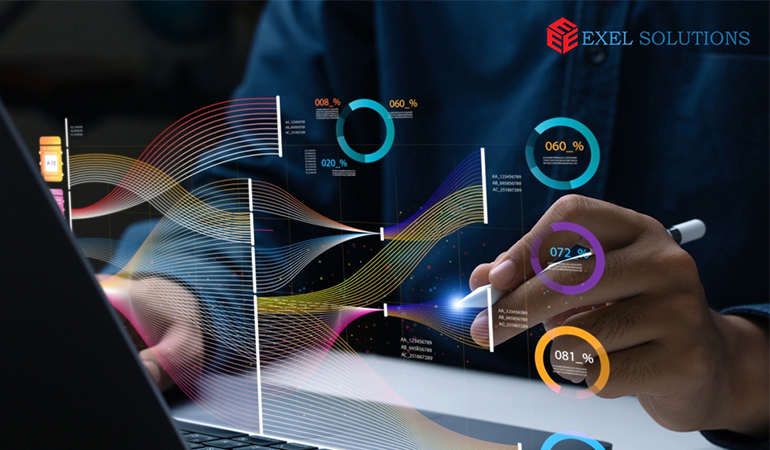
Artificial intelligence has been revolutionizing many industries recently, and the accounting sector is no different. Businesses use AI technologies to transform their accounting procedures, aiming for increased productivity, accuracy, and insights. Let’s look at the trends that influence such change and how these affect accountants.
Automating Typical Tasks
Automating repetitive operations is one of the biggest effects of AI on accounting. Over the past years, one of the main impacts of AI on Accounting has been when simple tasks such as data input, reconciliation, and basic analysis are being taken over and completed remarkably quickly and accurately by AI-powered software. Accountants can now concentrate on more strategic tasks that call for human judgment and experience, as these mundane, repetitive jobs have been taken care of.
Advanced-Data Analysis
With the power of AI, Accountants can now instantly sort and analyze enormous amounts of data while revealing patterns and insights that would have otherwise been hard to detect. These AI-powered software systems use machine learning algorithms to identify abnormalities, forecast future events, and offer insightful information to make timely and precise decisions. Accountants can now provide more strategic and proactive advice to their clients as the data collected is now improved and error-free.
Improved Fraud Detection
We have all been well aware that businesses of all sizes are prone to fraudulent activity. Most businesses have turned to artificial intelligence for support to protect their data from being breached or accessed by anyone. Similarly, in the world of accounting, such circumstances may occur, when a company’s data or information is in jeopardy. Thankfully, AI has proven to be far more effective than conventional techniques at identifying the possibilities of fraud. AI helps reduce the risk of such threats as fraud and financial mismanagement as it continuously monitors financial transactions and will notify accountants of any or every suspicious pattern. This adds value to the work of a human and creates secure accounting practices.
Personalized Financial Advice
As we talk about the impact of AI on Accounting, it is safe to say AI-powered accounting systems are an ideal way to go! Such accounting AI software systems examine the financial data of a specific business and provide financial guidance tailored to the business's practices. Such AI tools impact client objectives as they are capable of offering advice that is based on in-depth data analysis and help make informed decisions about optimizing tax strategies, controlling cash flow, and aiding in long-term financial goals.
Improved Regulation and Compliance
Accounting professionals and businesses may require assistance to maintain compliance with ever-evolving regulations. AI has the potential to ensure compliance through its ability to continuously monitor legislative changes, identify non-compliance issues, and assist enterprises in adhering to the latest requirements. By taking preventive measures, you can lessen the chance that you will break the law, incur penalties, and suffer reputational harm.
Change in Skill Sets
As AI impacts accounting procedures, accounting professionals' skill sets are changing. While technical knowledge is still necessary, the ability to solve problems, think critically, and analyze data is highly prized. Accounting professionals will succeed more in the future if they embrace AI and hone their skills in using AI-powered solutions.
In conclusion, AI technology is causing a huge upheaval in the accounting sector. The practice of accounting and the function of accountants inside businesses are evolving due to artificial intelligence. In an increasingly digital and data-driven environment, accounting professionals will need to embrace these trends and apply AI-driven solutions to stay competitive and add value.